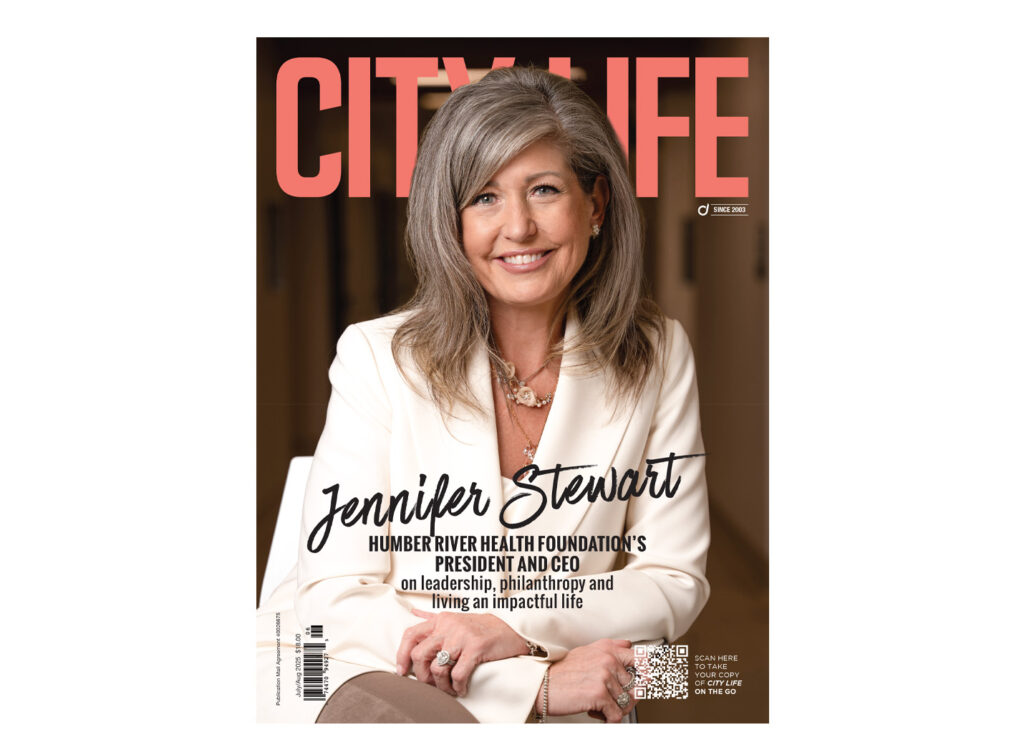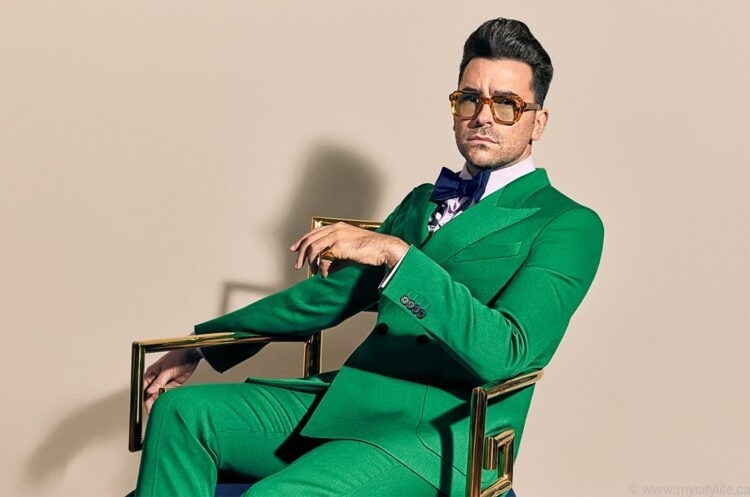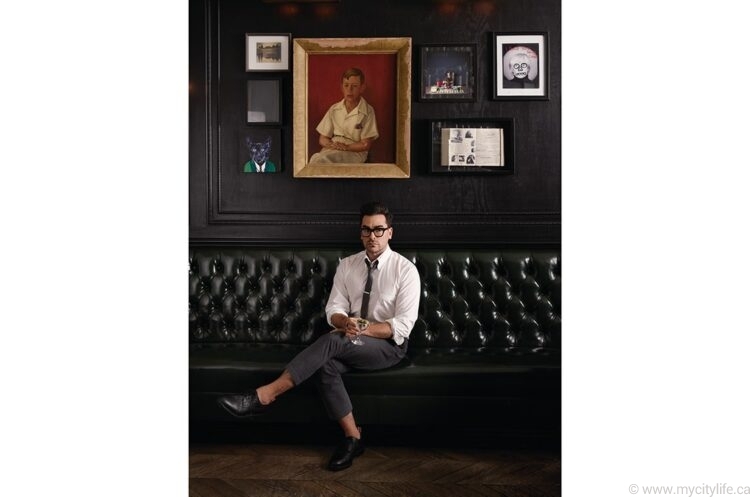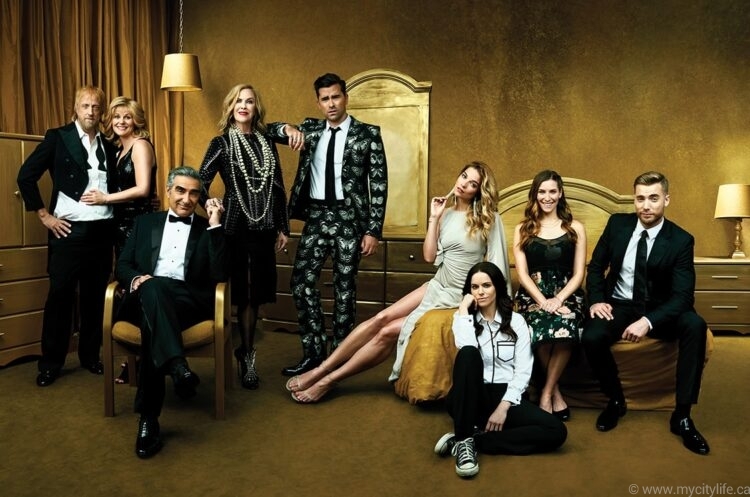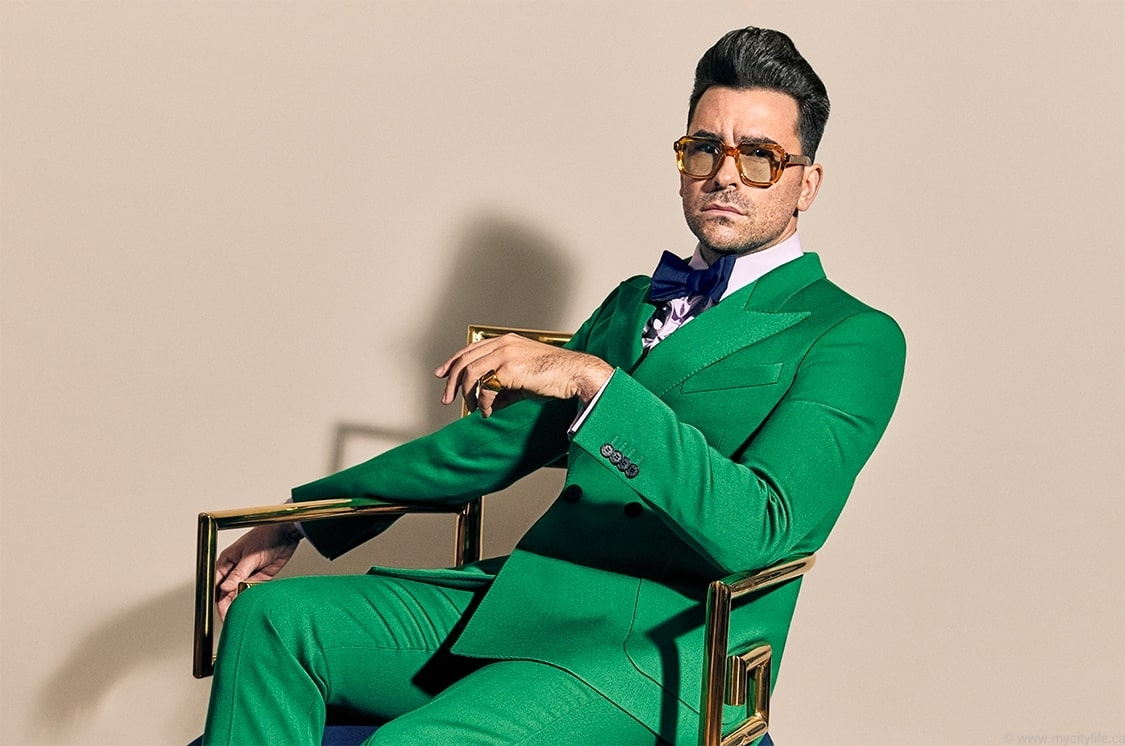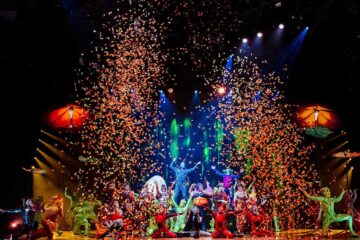Daniel Levy: The Legacy Of Schitt’s Creek
Daniel Levy, co-creator of Schitt’s Creek, decided to end the series at the peak of its popularity, leaving the show’s cult following with a bittersweet feeling and walking away with a record-setting nine Emmys.
It was not until the acclaimed Canadian TV series Schitt’s Creek had already wrapped its sixth and final season last year that it truly achieved proper recognition. That moment came in September, when series co-creator and show-runner Daniel Levy earned a massive haul of four Emmy Awards as producer, director, writer and supporting actor in the Outstanding Comedy Series category.
It was also a family celebration of sorts, as his beloved father, Eugene, also collected two Emmys (producer and best actor), as did Schitt’s Creek co-stars Catherine O’Hara and Annie Murphy. Not only was it the first time that a Canadian TV series had won the best series award in either the drama or comedy category, but it was also the first series in the 72-year history of the awards to win every single award in the comedy category. But Daniel wants to acknowledge the support of Canadian audiences who loved Creek from the beginning.
“I would love to work with these people again. But I would make a movie if it enhanced or added to the legacy of a show … I would never do anything to tarnish our legacy in any way”
“Recognition in the States is a wonderful thing, but oftentimes it’s compared to or contrasted with recognition in Canada,” Daniel says. “For me it’s important to note that our Canadian fans have been there from the beginning, and that we are by no means quantifying our success by way of American recognition.”
Another important element to the series was how Daniel, who is openly gay, was able to promote inclusivity with his character David’s pansexual identity and subsequent long-term relationship with Patrick (Noah Reid). Not only did playing a character like David make him more comfortable in his skin and give him “a sense of confidence that I never had before,” but the series also provided an opportunity to engage in important social commentary.
“I think when the political climate shifted in America, and you saw some of those ripple effects in Canada, that’s when I think people really found the show and were watching it for more than just its comedy. They watched it for the philosophy that we should be kinder to one another and cheer for each other in ways that we hadn’t necessarily been doing.”
Daniel was born and raised in Toronto, where his father, Eugene, and mother, Deborah Divine, returned home to from Los Angeles, and where his dad had found regular work as a supporting player in Hollywood movies and series. His parents thought that Toronto would allow him to grow up in a more normal environment and choose a career outside the entertainment industry. That plan fell apart almost immediately when as a child, Dan, together with his sister, Sarah (who also acted in Schitt’s Creek), would put on stage shows in the family living room for the benefit of another famous Canadian comic star, Martin Short, with whom the Levys would frequently take family vacations.
As a teenager, however, Dan began struggling with issues of identity. He first came out to his parents at age 18, when his mother broached the subject of his sexuality over lunch. Shortly after attending film school, Daniel landed his first big break in the industry when he was chosen to co-host MTV Canada’s flagship show, MTV Live, an experience he “hated” despite its success. He would later gain fame as a writer, host and producer of The After Show and its later spinoff, The Hills: The After Show. Daniel cites the latter show as the inspiration for Schitt’s Creek, which he developed together with his father.
“In The End, Schitt’s Creek Became A Fun Exploration About How Much Better We All Are Without Hatred And Bigotry And Intolerance, And How Much Stronger And Enjoyable Our Lives Are When We’re Able To Tell Stories Where Our Characters Are Surrounded By Empathy And Love”
The 37-year-old Daniel is currently single and divides his time between homes in Los Angeles and Toronto. Unsurprisingly, his father is “extremely proud” of his son’s achievements and believes that the success of Schitt’s Creek is all the more remarkable given that the series “was the first time he ever had this kind of responsibility.”
Q&A WITH DANIEL LEVY
Q: How do you feel about bringing Schitt’s Creek to an end and then sweeping the Emmy Awards?
LEVY: To be honest, this is the best way we could have ever ended the show. If there is an idea that pops into my head, it has to be really freaking good because this is a nice way to say goodbye. [And winning the Emmys] has been an unbelievable way to end our series. I don’t think you could ever ask for a better conclusion than that. We are absolutely thrilled.
Q: Is there any thought of bringing back the cast for a movie?
LEVY: Fingers crossed we get a nice idea popping into our head soon … I would love to work with these people again. But I would make a movie if it enhanced or added to the legacy of a show, which has meant so much to everyone involved and also the fans who have followed it. I would never do anything to tarnish our legacy in any way.
Q: How did the original idea for Schitt’s Creek pop into your head?
LEVY: I brought sort of the first germ of an idea to my dad very early on: the premise of playing on this sort of cultural awareness we now have of how wealthy people live. I brought the idea to my dad, thinking his comedic sensibility is something that is very specific and grounded in something real. And I thought it could really lend itself to this concept, which I think has the potential, or had the potential, to go quite broad and cartoony. It needed the opposite, it needed … an infusion of real, genuine comedy.
I think through reality television, we’ve been able to get an incredibly dimensional — whether we want it or not — idea of how wealthy people live their lives. I had also read about how Kim Basinger filed for bankruptcy a few years after she bought a town [in Braselton, Ga.]. And I thought it could be an interesting premise to examine as a comedy what would happen if all the money was taken away, and these people were forced to confront what really matters in their lives.
Q: What has it meant to you to have been able to work with your father, Eugene Levy, on the series?
LEVY: My dad has been an extraordinary model for me … I will never forget and always cherish that both my dad and my sister and I have had this opportunity to work together, enjoy our time together and be able to feel so good about the experience. My dad also gave me so much support and made this project a very safe and comforting space for me to be able to work. How many families ever get the chance to come back together in such a way and where we’ve been able to relate to each other in such a beautiful and life-affirming way?
My father is also someone who has enjoyed a very successful career in Hollywood and is not only respected, but really loved by people who have come to work with him and get to know him. And it was also wonderful to be able to reunite him with Catherine O’Hara, who have such a great rapport together.
Q: The series is also unexampled as a comedy in that much of the underlying drama is serious or not intentionally supposed to be funny.
LEVY: We always approached the show from day 1 as if it were a drama, and it is — I mean inherently. It’s quite tragic what happens to this family and the comedy really comes from the characters interacting with each other and interacting with their circumstance.
I think because it’s rooted in something real, and we’re not necessarily playing huge gags, you’re able to tightrope walk that fine balance between comedy and also exploring slightly more emotional moments and revelations as well.
Q: It must have been an extraordinary experience for you to have been able to work not merely with your father, Eugene, a Canadian icon, but also with another Canadian legend, Catherine O’Hara.
LEVY: It was such a great joy for me to work with my dad and Catherine, and watch them do their scenes. They had worked together for so many years and had started in Second City and come from this background where character is front and centre. You could take them in any kind of direction and it would still feel grounded and real. They’re living legends.
Catherine never did a single take that was the same. Every take was a different, unexpected choice, and every take was an unexpected laugh, because you had no idea where she was going.
Q: Did you feel that you were able to really harness the best of your dad’s and Catherine’s comic talents?
LEVY: Yes, and I’m really proud of that … because I don’t think they necessarily got a ton of opportunities to just do what they did best, which is great character work. For me, it was really about letting them play and then kind of writing around it or listening to things that they would say and try to incorporate it into our world. I wanted to give them that kind of freedom. Sitting back and having a master class in character comedy was probably one of the greatest takeaways I’ll have from the show.
Q: Although the series deals with many social issues, Schitt’s Creek depicted a different kind of world when it came to the way LGBTQ issues and characters were presented.
LEVY: It was about trying to tell stories about love and interrelationships that respected my own experiences and those of my friends in the [LGBTQ] community. It was also about reflecting a level of nonchalance that didn’t necessarily pertain to my story. The big thing that seems to have connected with audiences is the fact that there is an ease to the relationship [between the characters David and Patrick], and that we write the relationship in a casual way, and that was very deliberate.
Q: You also made a deliberate choice to avoid depicting homophobia.
LEVY: I think because we’re so accustomed to seeing queer love stories that are put in jeopardy by outside forces — it’s the sort of Brokeback Mountain effect of, any time you see two queer people in love, there has to be some kind of consequence. So, to propose a world where there is no consequence, and two people can love each other sort of wholly … in small-town America, and ultimately show that what comes from that is freedom and love and joy. It’s a form, I guess, of sort of quiet protest, saying that this is how things should be.
I’m a firm believer that we learn through what we see, and when we feel like we are being taught a lesson, we have our guards up, because we don’t want to be schooled on something. But to present something as it should be, I think has a much more powerful effect in people’s homes, and the letters that we’ve received from families who have watched the show together and it’s changed their own relationships … I guess it’s a testament to the fact that it does seem to be working, even if it’s just one family at a time.
Q: What is your ultimate takeaway from how the series changed the narrative about the way the LGBTQ community is perceived?
LEVY: In the end, Schitt’s Creek became a fun exploration about how much better we all are without hatred and bigotry and intolerance, and how much stronger and enjoyable our lives are when we’re able to tell stories where our characters are surrounded by empathy and love.
